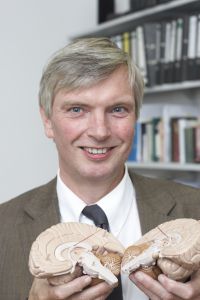
Eckart Altenmüller (MD, MA)
Eckart Altenmüller (MD, MA) is full Professor and Director of the Institute of Music Physiology and Musicians’ Medicine at the University of Music and Drama, Hannover, Germany.
After graduating in medicine and music he held a postdoctoral position in the department of Clinical Neurophysiology in Freiburg where he carried out research into brain activation during auditory processing of music and learning of fine motor skills.
Eckart received his clinical training in neurology at the Department of Neurology at the University of Tübingen, under Prof. Dr J. Dichgans. Since 1994 he is a chair and director of the Institute of Music Physiology and Musicians’ Medicine. Eckart researches into movement disorders in musicians, motor and sensory learning, and the effects of music on emotions.
During the last ten years Eckart has received twenty grants from the German Research Society (DFG). He has published 159 peer-reviewed articles and 119 book chapters.
Major awards include:
- Fellow of the Deutsche Studienstiftung
- Young Scientists Award of the German Physiological Society 1984
- Kornmüller-Award of the German Society for Clinical Electrophysiology for EEG-Research 1992
- Richard Lederman Lecture, Aspen 1999; Member of the Faculty of the European Forum Alpbach 1999
- Otto Creutzfeldt Lecture of the German Neuroscience Society 2003
- Member of the Göttingen Academy of Sciences 2005
- President of the German Society for Music Physiology and Musician’s Medicine from 2005-2011, since 2011 Vice-President
- Science Award of the Country of Lower Saxony 2013
__________________________________________________________________________________________________________________________________________________________________________________________________
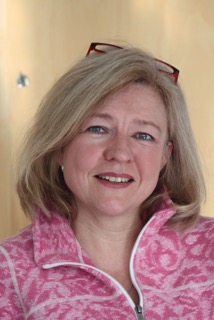
Dr Marja-Leena Juntunen
____________________________________________________________________________________________
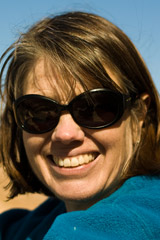
Prof. Sally Ann Ness
Prof. Sally Ann Ness is a full time faculty member in the Department of Anthropology at the University of California, Riverside.
She has worked in urban provincial centers in the Philippines as well as in Indonesia and the United States.
Her research has focused on various forms of symbolic action, both in the practice of everyday life and in extraordinary ritual and secular performances. She has written on the semiotics of festival life, dance, and sport, as well as on tourism development and its consequences for cultural practice and cultural identity. Her current research, funded in part by a 2006 Guggenheim Fellowship, focuses on choreographic aspects of Visitor practice in Yosemite National Park, drawing in part on the work of Gregory Bateson to illuminate connections between place, embodiment, and motility.
______________________________________________________________________________________
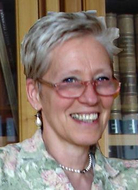
Dr Gunhild Oberzaucher-Schüller
Born in Vienna, Dr Gunhild Oberzaucher-Schüller taught history of dance at the Universities of Vienna, Bayreuth and Salzburg and was curator of the Derra de Moroda Dance Archives, Salzburg (2003-2009).
She had studied in Vienna, receiving her doctorate from the University of Vienna for a thesis on Bronislava Nijinska. She was member of Forschungsinstitut für Musiktheater der Universität Bayreuth of (1982-2002), where she was in charge of the dance section of „Pipers Enzyklopädie des Musiktheaters“.
After visiting Russia and USA she was responsible for the research of the early works on George Balanchine. Oberzaucher-Schüller’s work include books, essays, book reviews, edited volumes, catalogue entries and translations. She has presented numerous lectures at home and abroad and has been curator of several exhibitions related to dance. Her current work focuses on ballet of the last three centuries and Ausdruckstanz. She also worked extensively on Sergei Volkonsky who promoted Jaques-Dalcroze in Russia. As a honorary member of the IGRC – Internationale Gesellschaft Rosalia Chladek she was jointly initiating the revivals of Rosalia Chladek’s solo works.
More recent publications include Ausdruckstanz (2nd ed. 2005), (Mundart der Moderne – Der Tanz der Grete Wiesenthal (with Gabriele Brandstetter, 2009) and Rosalia Chladek. Expression in Motion (with Ingrid Giel, 2011).
__________________________________________________________________________________________________________________________________________________________________________________________
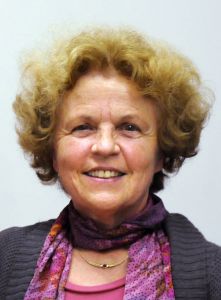
Eleonore Witoszynskyj (M.Phil)
Eleonore Witoszynskyj (M.Phil) was born in Vienna. She took Rhythmic-Studies at the Conservatory of Zurich and the University of Music and Performing Arts Vienna.
She has undertaken additional studies in instrumental teaching, psychology and therapy education, as well as dance-therapy and analysis of movement for people with physical and mental disabilities.
Eleonore has extensive teaching experience at the Institute of Music and Movement Education & Music Therapy at the University of Music and Performing Arts Vienna. At present she is university professor in the theory of music and movement at the institute and also presents as a guest-lecturer at conferences, workshops and higher education institutions in Austria and abroad. She has appeared at international conferences and taught at universities in Austria, Germany, Italy, Latvia, Sweden, Switzerland, Spain, Ukraine and Venezuela.
Eleonore’s publications include Witoszynskyj, E., Schindler, G., and Schneider, M. (2011) Erziehung durch Musik & Bewegung (3rd edition) and Bankl, I., Mayr, M., and Witoszynskyj, E. (2009) Lebendiges Lernen durch Musik und Bewegung, Sprache, as well as numerous articles.
_______________________________________________________________________________________________________________________________________________________________________________________
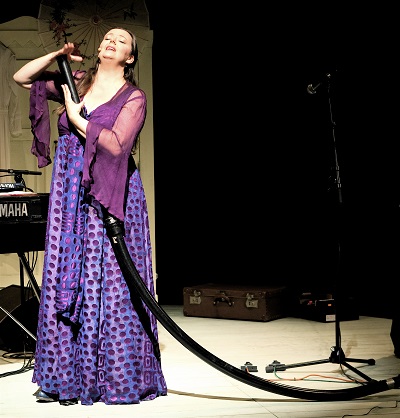
Hilde Kappes
Hilde Kappes, an outstanding artist in the field of voice and music performance, was born along the River Mosel close to Cologne, Germany. She studied Music and Movement / Rhythmics at the University of Music and the Performing Arts in Vienna.
Her vocal acrobatics and exceptional musicality on a range of instruments first gained attention in 1996 through an article in the renowned German weekly Die Zeit. Her moderation of André Heller’s Variety Show in Berlin’s Wintergarten Theatre as a femme fatale and drainpipe artist with her own invented “Schortuanisch” language had captured the audience’s imagination and given the show an inimitable flair.
Stage appearances followed in Germany, France, Switzerland and Austria in theatres, cultural institutions, comedy festivals, jazz festivals, voice and world music festivals, literature festivals and environmental conventions, as well as the management of interdisciplinary projects (fine arts, dance and film). Hilde Kappes has composed, recorded in an improvisatory manner and staged music for theatre and film, and for radio plays on Deutschlandfunk and Deutschlandradio. One outcome of this period was the production of four CDs and two DVDs.
Since 2001, Hilde Kappes has received several awards, including Germany’s most prestigious cabaret prize Prix Pantheon in Bonn, the Düsseldorfer Handelsblatt Prize, and the Rhoner Sur Prize in Bolzano/Italy.
“As if Goddess Freya had arranged to meet Venus, Kappes’s art fuses into a ‘one woman opera’, where looped plastic bottles with plucked piano strings metamorphose in her larynx to Mongolian sounds, and blend would-be chanting, worshipping and velvety truths to a sort of musical manifestation that physically and sensually makes healthy fun of the madness of human encounters, satirizes it and with magnificence packs it full of the true order of nature: ‘Thou shalt desire!’”.


